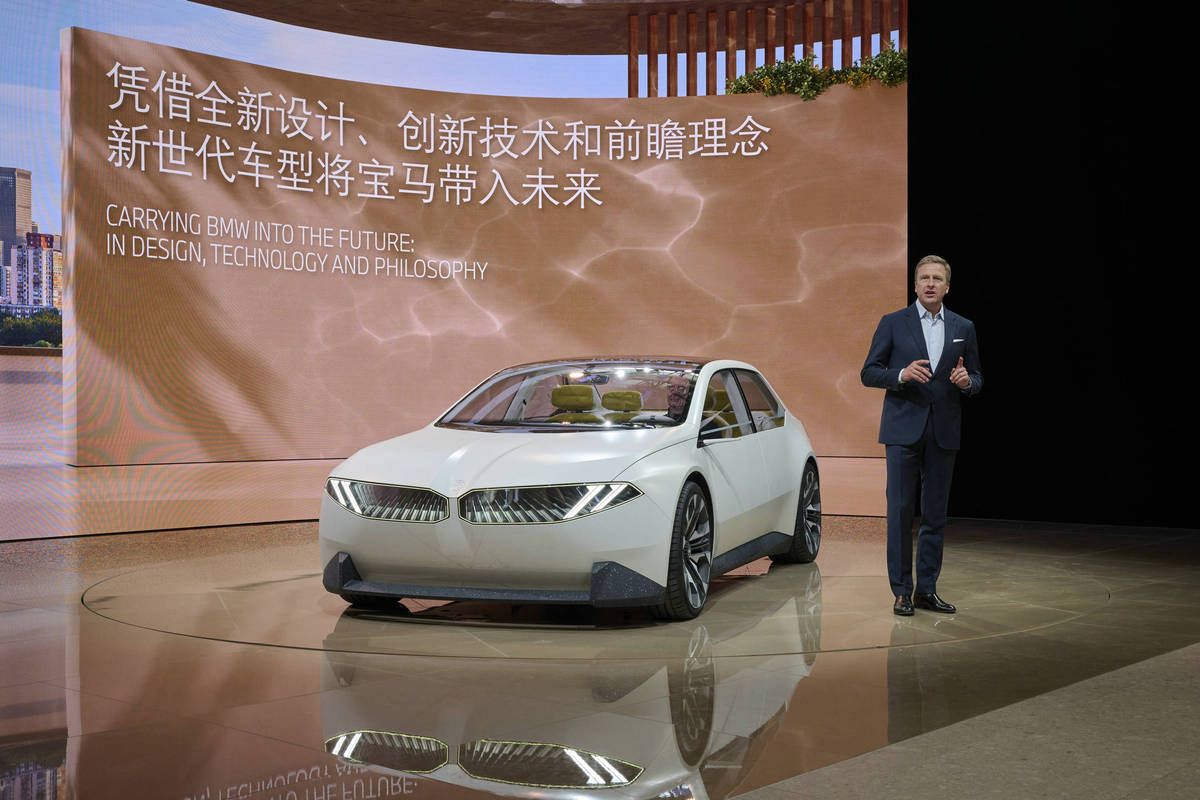
Oliver Zipse, BMW’s chairman of the board of management, unveils a Neue Klasse model at the Beijing auto show on April 25, 2024. [Photo provided to chinadaily.com.cn]
The EU’s investigation into the Chinese EV sector “is not necessary”, said Oliver Zipse, BMW’s chairman of the board of management.
The ongoing investigation started in October 2023. The EU said the European market is flooded with electric vehicles from China, claiming that their advantage is because of government subsidies and threatening raising tariffs on Chinese EVs.
“We are not a fan of this investigation. It is not necessary,” said Zipse in an interview with China Daily on Thursday during the Beijing auto show.
“From BMW’s view, we are in Europe very competitive, like in China. In full open markets, the best company will win, so we don’t support that investigation,” he said.
Zipse said the imports of pure electric vehicles into Europe from China are from non-Chinese carmakers, including BMW.
“So if you look like that, BMW is a Chinese company, because we are exporting vehicles from China to Europe.”
“We are, like always, a fan of free markets, free flow of goods. We should all work on reducing trade barriers, not increasing them, because the majority of tests we have in the world have to be done together.”
On Friday, BMW announced its plans to invest an additional 20 billion yuan ($3.12 billion) into its production base in Shenyang, Northeast China’s Liaoning province.
“The new investment underlines not only our confidence in China’s long-term economic prospects but also in the innovation capabilities of our Chinese partners,” said Zipse.
The carmaker said the investment will make its Shenyang manufacturing hub ready for the production of the Neue Klasse models, the first of which will roll off the production line in 2026.
China is BMW’s largest market worldwide. It is also home to the car group’s largest research and development network outside Germany and around one-fifth of its global workforce is based in the country.
